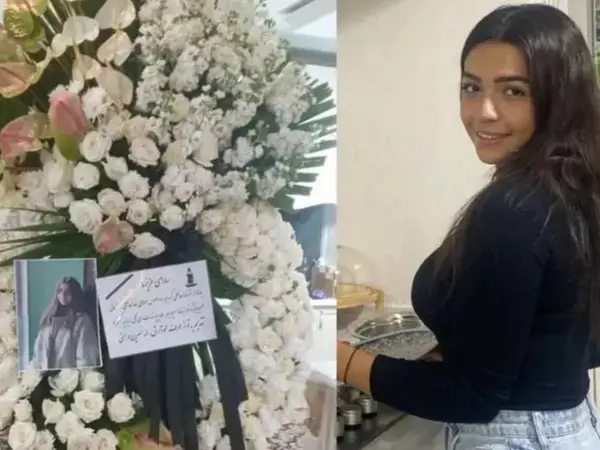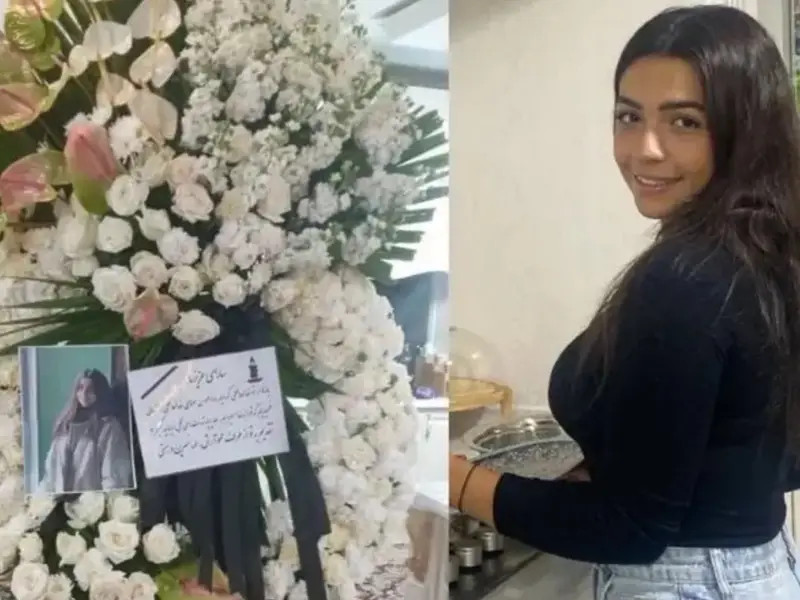Information received by Iran International indicates that Sara Tabrizi, a former political prisoner in Iran, has died under suspicious circumstances.
The body of the 20-year-old woman was found in her father’s house in the Iranian capital Tehran on Sunday.
According to the report, Tabrizi was subjected in the last weeks of her life to severe psychological pressure by the security agents of the Iranian government and was summoned to Iran’s infamous Ministry of Intelligence just one day before her death.
On November 16, Tabrizi was detained by security forces at Tehran’s International Airport, along with another citizen, while on her way to England. She was sent to Ward 29 of the Evin prison, belonging to the Ministry of Intelligence. After around ten days of interrogation, she was released on a bail of 10 billion rials ($20,000).
According to the information received by Iran International, Tabrizi was forced to spend the first three days of her detention in solitary confinement, a challenging period for her which led to severe anxiety, high blood pressure and high heart rate. She was later transferred to a three-person cell in Evin Prison.
“Sara was threatened by the interrogators that if she fails to cooperate with them, she will be sent back to solitary confinement and that the private content of her cell phone would be made public so that it would reach her family,” a source close to Tabrizi’s family revealed to Iran International.
Tabrizi was once again summoned and detained on January 8, this time released on a bail of 20 billion rials ($40,000).
Subsequently tried by notorious Judge Iman Afshari in Tehran’s Revolutionary Court, she was sentenced to suspended imprisonment over such charges as “insulting Supreme Leader Ali Khamenei, and using fake documents and someone else’s passport.”
In an official report submitted to Tabrizi’s family in the presence of security agents, Iran’s Legal Medicine Organization announced “taking pills” as the cause of her death.
Referring to people dying suspiciously in prisons or shortly after release, the Iranian regime often claims they have committed suicide, though it is now widely disregarded as propaganda.
“Her family found no empty pill box near her corpse. They do not know whether she committed suicide, had a stroke or was killed by the agents themselves,” the source told Iran International.
Last week, Alireza Khari, another former political prisoner, committed suicide under continuous psychological pressure and torture, even after release from prison. He was arrested during the nationwide uprising triggered by the death in morality-police custody of Mahsa Amini in 2022.
Judiciary officials who have always refused to allow international investigations into Iranian prisons, claim conditions at these facilities are suitable. The experience of many prisoners, however, proves that prisons and detention centers run by security forces have become “killing grounds” for prisoners, especially dissidents.
In the past month alone, several political prisoners attempted or committed suicide. These include Mosayeb Yeganeh who was returned to Tehran’s Evin prison from hospital before the completion of his treatment. Shahin Gallehdari, a Kurdish political prisoner was another victim who died at the ultra-security ward of the Central Prison of Orumieh in northwestern Iran, and Hasan Omarpour, another Kurdish prisoner self-immolated at the same prison.

